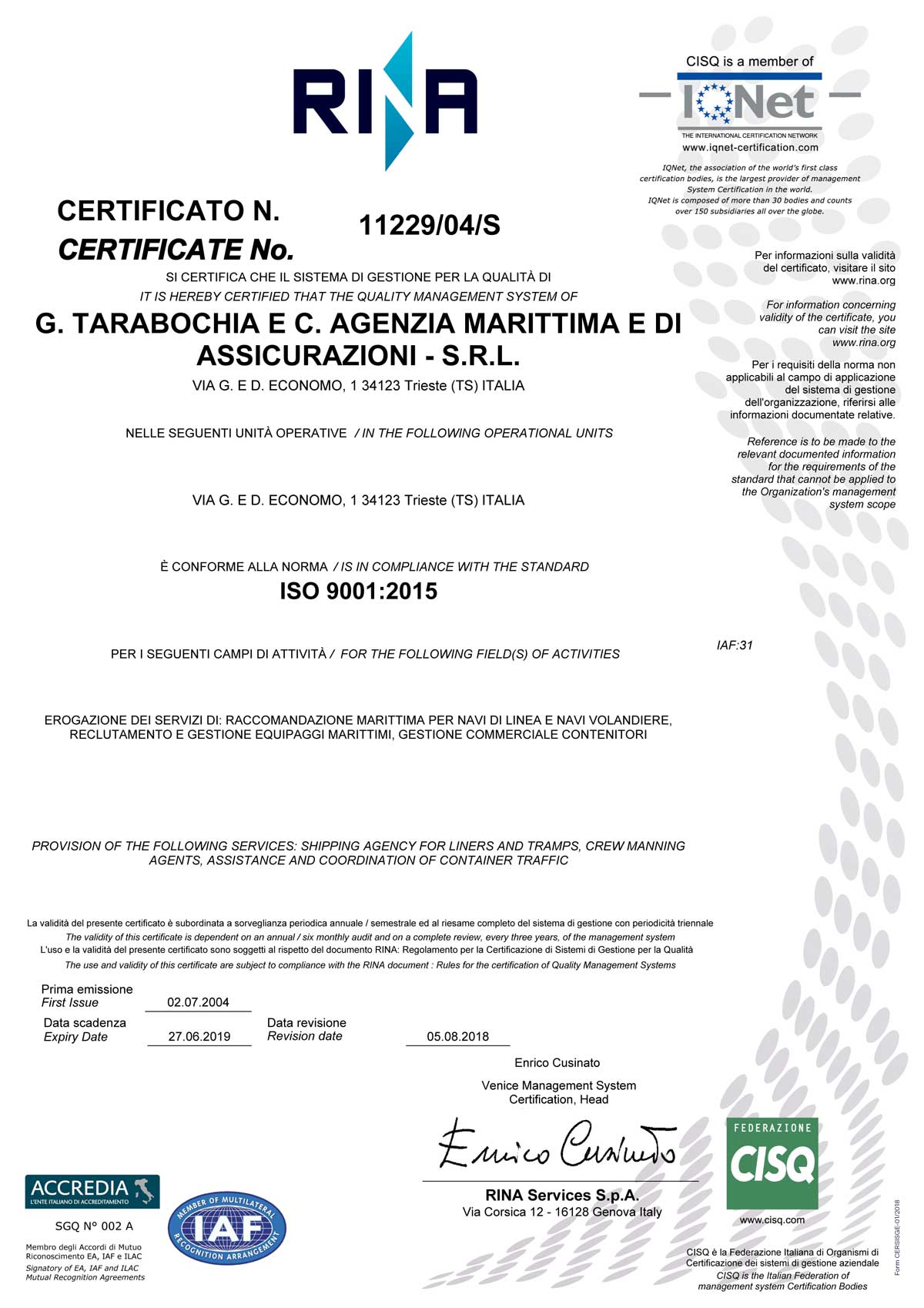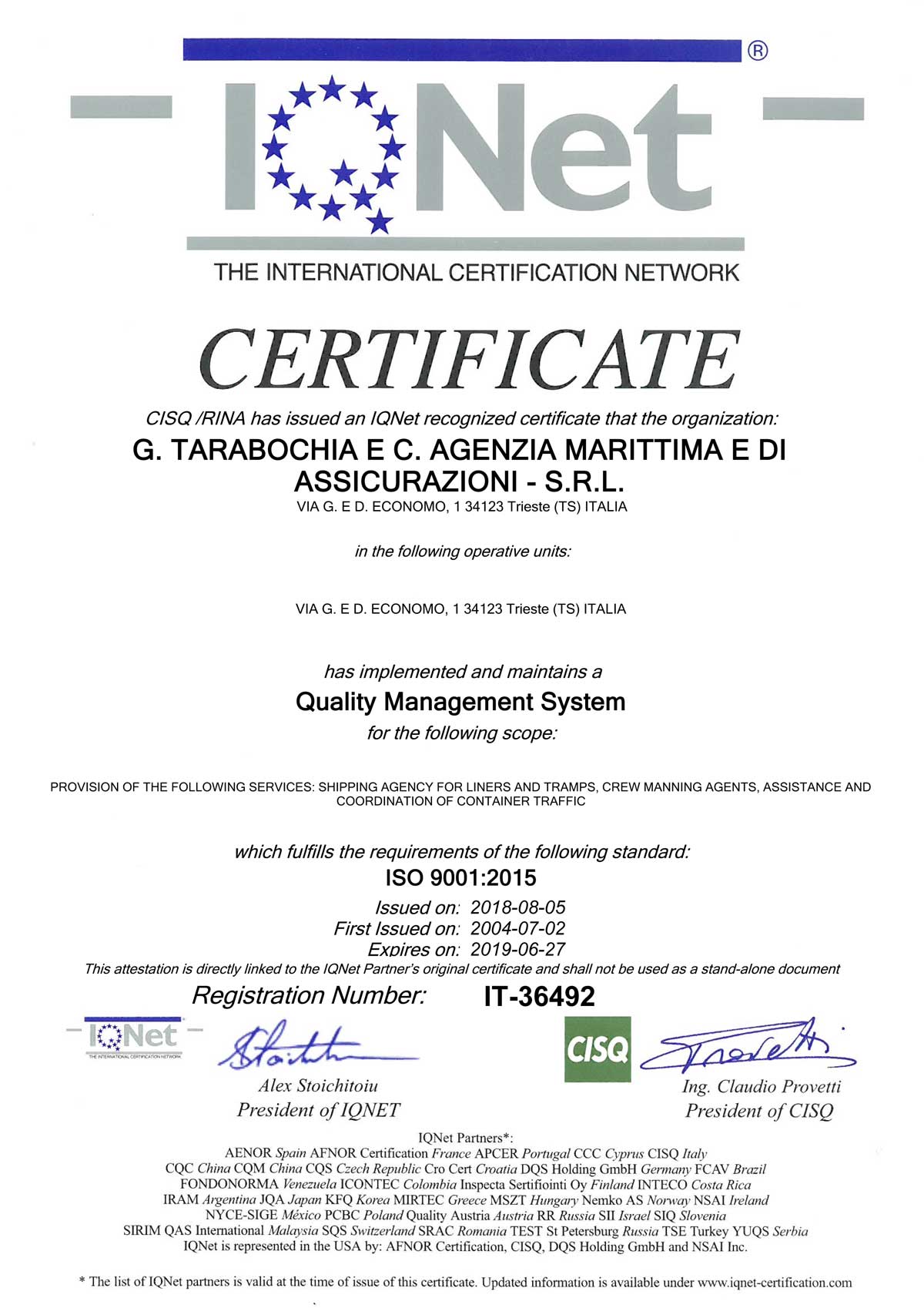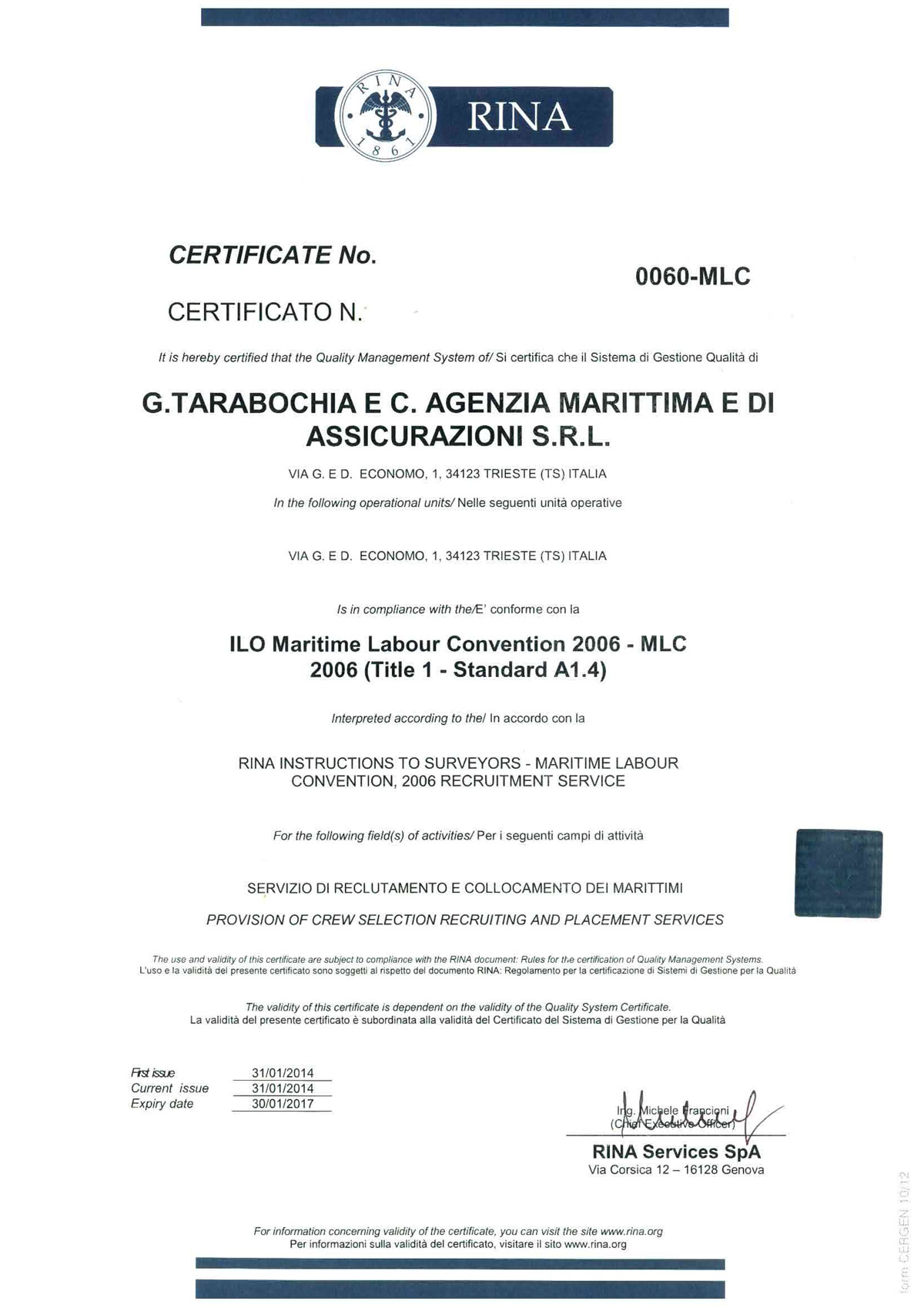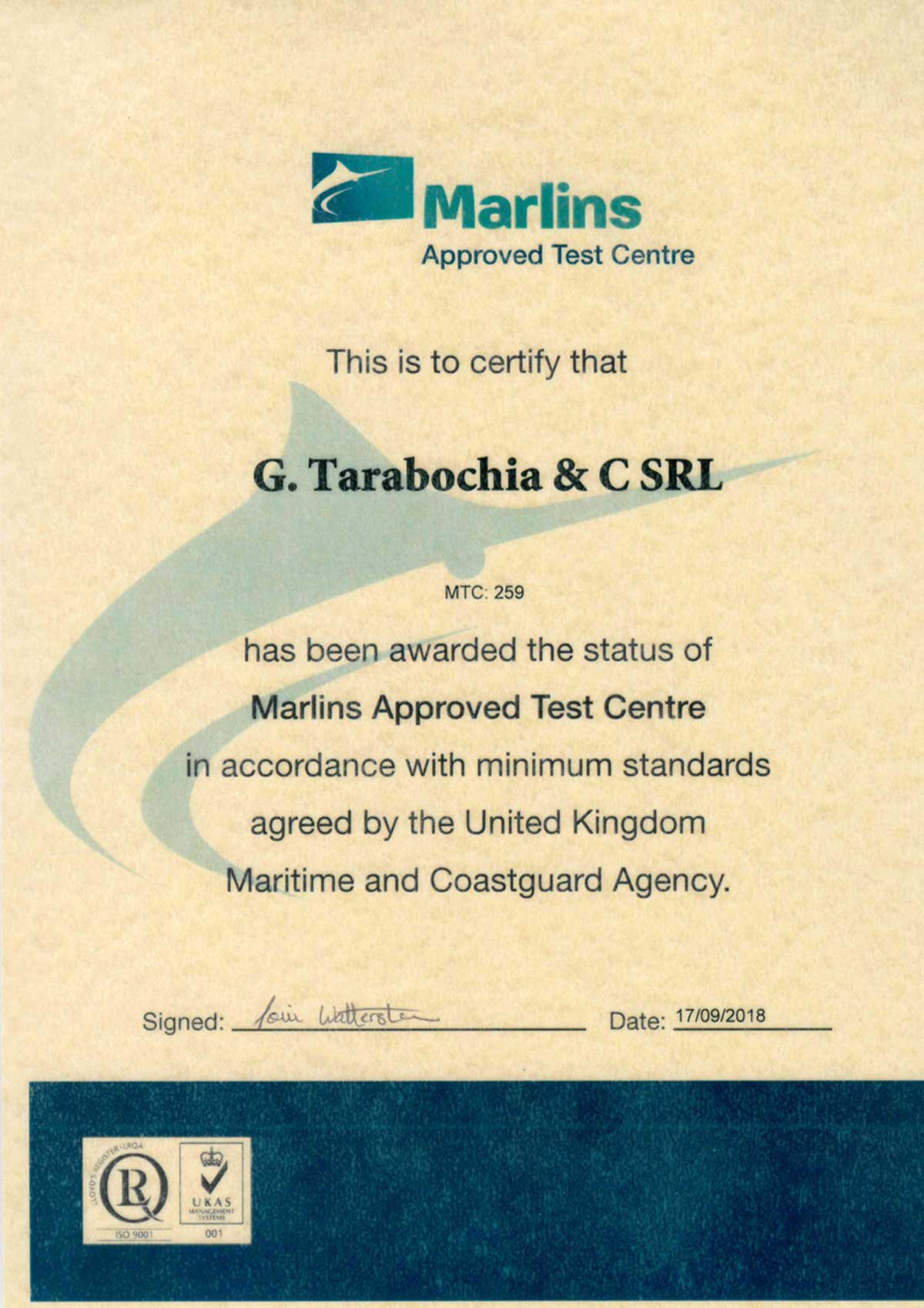Our Certifications
G. Tarabochia & C. is certified according to the quality system Standard ISO 9001:2015 criteria, for providing services of maritime recommendation for liners and tramp vessels, recruiting and managing maritime crew, commercial management of containers.
It’s the Company’s goal to consistently pursue customers’ satisfaction, to give transparency to the operating procedures of its organization and to improve the quality of services offered, by establishing a working environment suitable for properly conducting of activities, through the empowerment and raising awareness of the problems regarding the quality of all personnel working in the company and thru a systematic analysis of the context in which the organization operates and develops its activities and assessment of related risks,
The company is also certified according the rules of the ILO Maritime Labour Convention 2006 – MLC 2006 (Title 1 – Standard A1.4) coordinating and documenting through its organization the recruitment, the engagement and management of seagoing personnel providing services complying the regulations and requirements of the MLC Convention.
It has recently obtained the recognition to operate as an approved test center for the execution and release of the Marlins Test Certificate, the main platform dedicated to the use of the English language for the maritime personnel that certifies their level of competence and understanding.
We expect to obtain soon the Quality Standard issued by FONASBA, the World Federation of Ship Agents.
G. Tarabochia & C. is a member of the Ship Agents Association of Friuli Venezia Giulia, associated with Federagenti, the National Federation Shipping Agents and Shipbrokers Maritime.
It works in full respect of any law regarding the privacy and security in managing sensitive data, security in the workplace either of its offices or on board ships. It meets environmental standards and coding conduct of their staff through specific manuals.
Special attention is given to staff training, diversified for the already experienced staff to new staff through participation in general courses such as foreign languages or informatics, as well as specific of the sector, even through e-learning or videoconference courses
.




